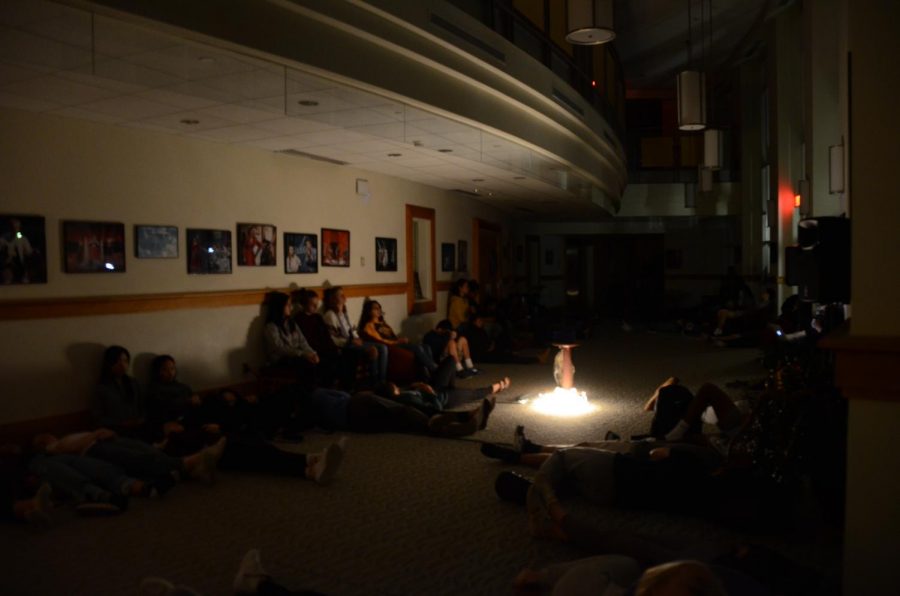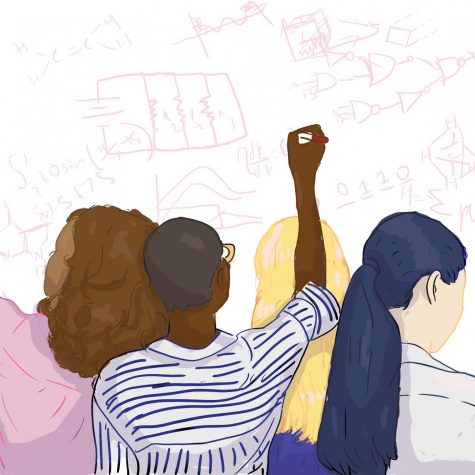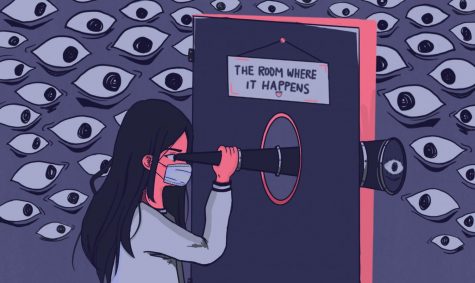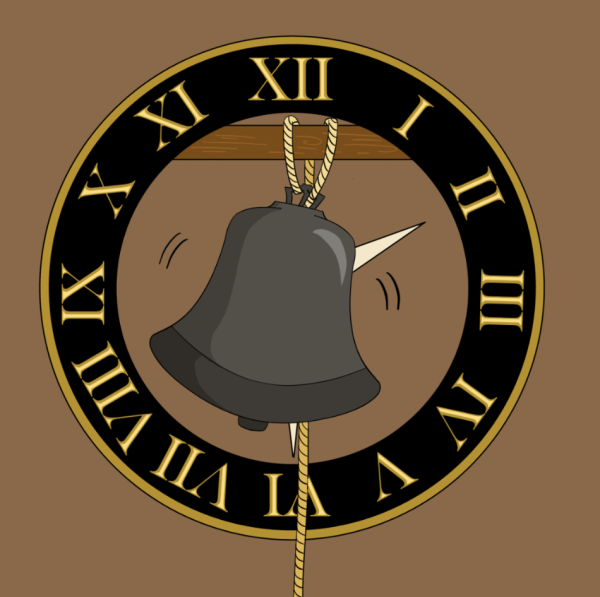Buddhist Sangha Fails to Meet Student Needs
Students at Buddhist Sangha.
As a new Fifth Former, I signed up for Hindu and Buddhist Sangha as my religious requirement. I hadn’t known what to expect, so on the first Sunday of the school year, I was perplexed to find myself arriving for a religious service at the Campbell Performing Arts Center (CPAC), of all places. More surprising than the building was the setup itself: fairy lights and a speaker system stood before a circumambient group of students, who reclined on the floor or in cushy chairs, munching on donuts as they scrolled through their phones. The overall atmosphere seemed one of casual nonchalance.
The service comprised a talk by Sangha leader Ms. Andersson, her speech divided up by intervals of songs or recorded readings. As the service progressed, I was disappointed to note that the audio did not pertain directly to either Hinduism or Buddhism – rather, most of the songs and readings presented general motifs such as freedom rather than specific topics in either religion. Meanwhile, several students had dozed off, and a handful more were texting.
It became evident that Sangha at Groton serves less as a religious service for Hindu or Buddhist students, and more as a catch-all for non-religious students. Ms. Andersson recalled that when she took charge of Sangha five years ago, she read traditional Buddhist texts to the group. The language was dense and difficult to comprehend, so – perhaps understandably – most of the students fell asleep. From then on, she altered the sessions to appeal to students of all beliefs. Most of the songs that accompany periods of reflection are in English so that all students can understand them and thus gain more from the experience than if the lyrics were in a different language.
The sanghas encompass ideas such as finding peace and bolstering self-care, because as Ms. Andersson explained, “society is often superficial and materialistic, so I want to free students from confining expectation on perfection.” Of course, with the academic pressure that many Grotonians experience, having an hour on the weekends to relax or reflect on these motifs is beneficial to students. The inevitable side effect of catering to all belief systems, however, is that those who attend Sangha with the intention of practicing a religion get the short end of the stick and often leave feeling dissatisfied.
Sangha appears particularly flawed when compared to Groton’s other religious services. For one, Sangha is held on the floor of the CPAC, which is by no means a formal area where students can easily reach a spiritual understanding within themselves. As Ms. Andersson said, the place is “not set up to be a holy sangha.” The attitude toward Sangha is also informal: unlike many other services, students come in casual attire with cell phones in hand, which implies a disregard for the religions of the service.
Even the name, “Hindu/Buddhist Sangha,” denotes disrespect towards both religions; they do share some similarities, but they are undeniably two distinct religions. Grouping them into one service seems an offhand, dismissive way of attending to students who follow Buddhism or Hinduism.
Discussion of Hindu students attending a local temple has arisen but, welcome as it is, still does not solve the issue for the remaining students, who will be left with a service that attempts to appeal to Buddhists as well as atheists. If the religious requirement cannot be removed, then the ideal solution seems to be a service at the local temple for Hindu students, a sangha that is more pertinent to Buddhism for Buddhist students, and a time for atheist or agnostic students to reflect and unwind, as the current sangha aims to offer.
Overall, the issue appears to stem from the religious requirement itself. Sangha, known for its casual atmosphere, gives students who do not identify as Hindu or Buddhist an inoffensive option to fulfill their requirement. Ms. Andersson must therefore try to make the hour meaningful for all attendees, which unfortunately results in an inevitable detraction from Buddhism and Hinduism. Moreover, those who are attending merely because they are required to do so show less interest in Sangha and often end up sleeping or texting, which disrespects both religions. These limitations, in turn, leave Buddhist and Hindu students without a service that upholds traditions and beliefs specific to their religions.













